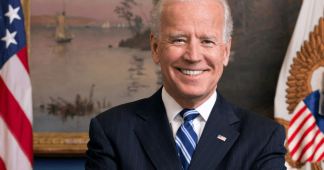By William Rivers Pitt
In the immediate aftermath of Tuesday’s elections, media commentators from virtually all points on the political compass have coalesced around a summary condemnation of progressive Democrats.
This can perhaps be explained by a cynical yet accurate observation that has been espoused by introspective journalists now and again — political reporters are herd animals, a flock of birds who turn and wheel together in search of The Narrative. After Terry McAuliffe’s narrow defeat in Virginia and a close call in New Jersey, The Narrative came together with seamless ease: Pundits started agreeing that Democrats are reeling from these sudden electoral reversals, and that progressive intransigence in Congress is largely to blame.
Indeed, the word “reeling” seemed to be everywhere on Wednesday morning. For a time, The Washington Post had permutations of “Democrats reel” in dueling headlines at the top of their homepage. CNN, The New York Times, even the august Virginia Mercury all followed suit in one “reeling” form or another. A Google search for “Democrats Reeling Virginia” yielded more than 2 million results by Thursday. The Narrative had been established beyond any ambiguity.
But it is worth digging deeper to understand both the election results and the media attack on progressives that followed them. First of all, there are dozens of reasons why an exhausted electorate chose to lurch away from a party whose president pulled down 84 million votes a year ago, and who won Virginia by 10 points. The pandemic continues, and millions of parents and workers still feel the bruises raised over a frightening and frustrating 18 months of grinding uncertainty, and reasonably or otherwise, visited their wrath on the party currently in charge.
Running against Trump a year after his defeat was not nearly as effective as Democrats had hoped it would be. Beyond that, brazenly racist campaign tactics cloaked in a discussion on “education” turned the conversation in Virginia inside out… and if we’re talking raw politics, we can’t leave out a McAuliffe gaffe that made Gerald Ford look like Marcus Aurelius. One may agree with McAuliffe’s statement, but it was kerosene on the GOP’s fire, they ran wild with it, and McAuliffe proved himself insufficient to the task of dealing with the aftermath. All in all, it was an ugly race, and Republicans do ugly campaigns far more effectively than Democrats.
So there’s all that, but I have a strong sense that the sudden, thunderous consensus that progressives dragged down the Democrats on Tuesday stems from more than mere herd behavior by political reporters. With much of the “news” now owned by a few massive corporations, there is little affinity for progressive views and values in your average newsroom. “Socialism” is a conjuring word for the hedge fund class, as much as it is with the poorest members of Trump’s base. Often, this media bias is revealed in a passive way: Instead of attacking progressives, the press simply pretends they don’t exist.
Wednesday’s crass chorale was far more immediate, vivid even. Much of the moneyed elite despises President Biden’s Build Back Better Act because of all the social and climate reforms it contains, and despises progressives for fighting so effectively in favor of it. The corporations that own the news have spent hundreds of millions on lobbyists trying to tear the Act down, and they have not come away empty-handed. Thanks to the ceaseless efforts from pro-corporate senators like Joe Manchin and Kyrsten Sinema, along with a clutch of corporate Democrats in the House, the bill is a shadow of what it was.
The fact that the bill still exists with a few teeth left, combined with the amount of time it has required for corporate Democrats to smash it up in the face of stalwart progressive opposition, has been galling for powerful people who are all too used to getting their own way. In the aftermath of Virginia, congressional progressives were offered as a scapegoat. Indeed, mutterings that “A loss would be the progressives’ fault” had been rumbling for days before the vote, from Washington, D.C. to the very lips of Terry McAuliffe, himself a Clinton ally and no friend of the left.
The truth is that conservative Democrats made a hash of the legislative process in this instance, and have not yet stopped. Manchin continues to play the part of The Riddler, while Sinema has gone as dark and quiet as a deep-diving nuclear submarine. The pressure to pass something, anything to set the table for next year’s midterm elections was extreme before Virginia. After the barrage of headlines and condemnations, that pressure has only increased.
House Speaker Nancy Pelosi has told Democrats that she intends to hold a vote on the infrastructure bill on Thursday, and the Build Back Better Act on Friday. This would de-couple the bill, an action progressives have fiercely resisted since the summer. Pelosi appears to be betting that the weight of blame for Tuesday will compel the Congressional Progressive Caucus to run up the white flag and join her in the suck tide of milquetoast history.
It would not surprise me in the least if Speaker Pelosi is secretly pleased with Tuesday’s election results. She has been seeking the proper club to wield against the Congressional Progressive Caucus ever since it became clear that Manchin would only settle for a hollowed-out shell of a bill. The torrid reporting on Virginia, if you believe what you read in the papers, gives her that club. The next 48 hours will show us how she chooses to swing it. One thing seems certain: Someone will be “reeling” before the deal goes down, if it goes down at all.
Published at truthout.org
We remind our readers that publication of articles on our site does not mean that we agree with what is written. Our policy is to publish anything which we consider of interest, so as to assist our readers in forming their opinions. Sometimes we even publish articles with which we totally disagree, since we believe it is important for our readers to be informed on as wide a spectrum of views as possible.











